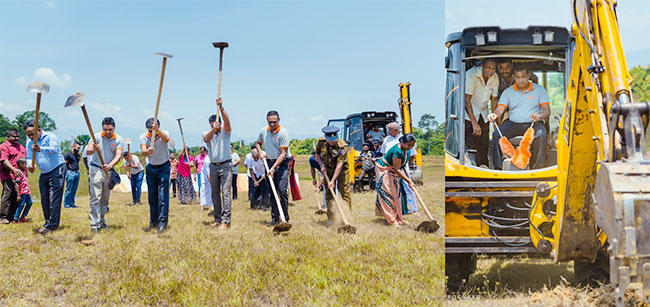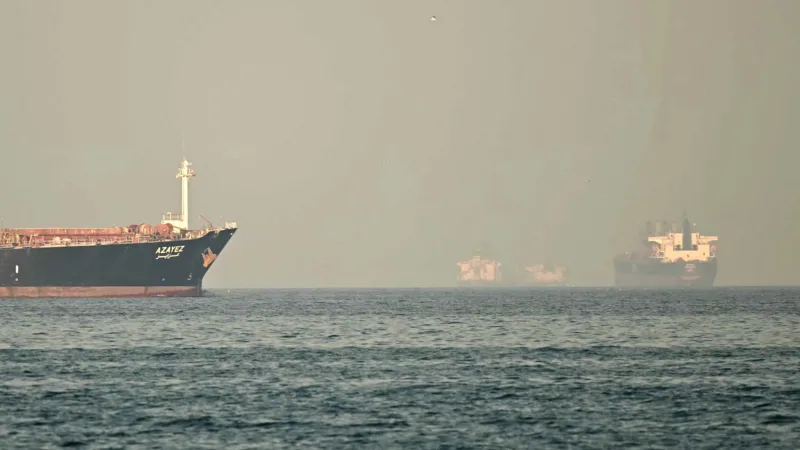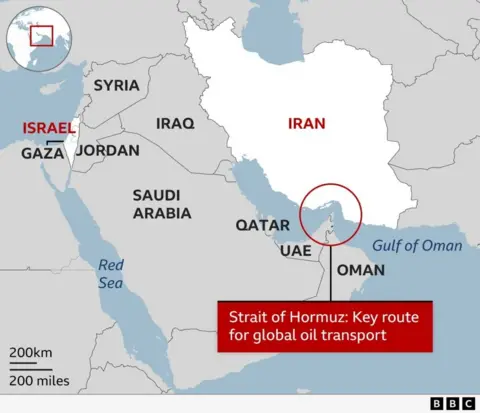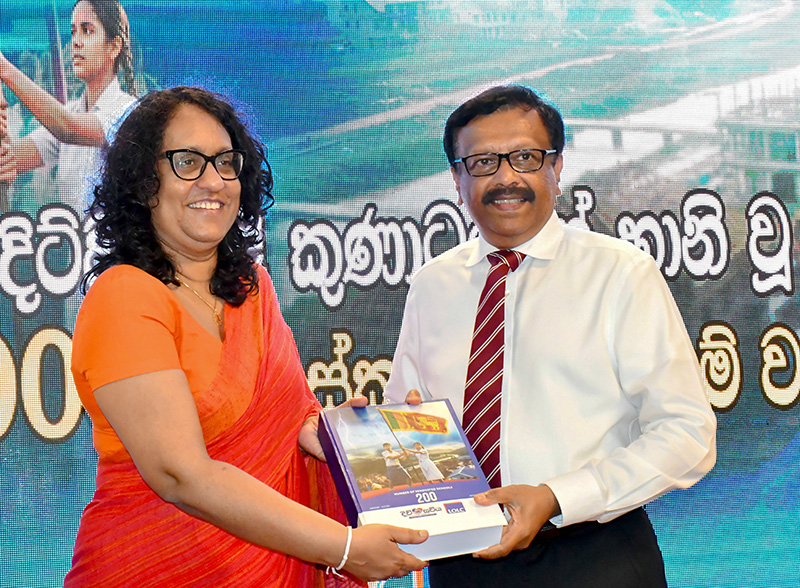Business
‘Wewata Jeewayak’ CSR programme commences 8th tank restoration project

As a bank that takes pride in its Sri Lankan roots, Sampath Bank has always appreciated the immense value generated by the tank (Wewa) systems in and around the country and its ‘Wewata Jeewayak’ programme is a committed endeavour to restore the traditional irrigation networks that were constructed by the ancient kings of Sri Lanka.
The ‘Wewata Jeewayak’ programme is a part of Sampath Bank PLC’s community capacity building initiatives that aims to provide sustainable solutions to ensure a dependable supply of water for dry zone farmers to cultivate their paddy land and harvest both the Yala and Maha paddy seasons, annually. Through the project, the Bank aims to promote organic farming as a viable means of maintaining a sustainable livelihood through agriculture. Furthermore, this project contributes to the Bank’s triple bottom line as it enriches the lives of the community in the area, improves the water capacity of the tank and develops the surrounding eco-system and empowers agri-entrepreneurs by making them financially inclusive.
A structured undertaking to rebuild the tanks that have suffered neglect and ruin due to the passage of time, the ‘Wewata Jeewayak’ programme has seen the restoration of seven tanks to date namely; Udamaththala Wewa in Lunugamwehera (2001), Ilukpelassa Wewa in Thanamalwila (2002), Konketiara Wewa in Hambantota (2002), Dematawa Wewa in Panduwasnuwara (2014), Halmillakulama Wewa in Nochchiyagama (2017), Ambagahawewa in Kahatagasdigiliya (2018), Dhanyawa Wewa in Divulankadawala (2018) and has just broken ground on its latest project, the Kindagalla Wewa in Bibile.
Located in the Kokunnewa area in the Monaragala district, the Kindagalla tank has a surface area of 15 acres and currently provides water to 62 acres of paddy land, benefitting 60 farmer families. Post restoration the tank will supply 262 acres of farming land with water, thereby directly benefiting 260 families. The restoration work will be executed under the supervision and technical expertise of the Agrarian Development Department in Monaragala with the villagers forming most of the labour force.
The ground-breaking ceremony was preceded by several cultural and religious observances in order to invoke blessings upon the project. The ground breaking was conducted to the chanting of Pirith by religious leaders from the village temple and saw the participation of representatives of Sampath Bank, several government officials from the area, customers, members of farmers associations, village leaders as well as members of the community.
Speaking about the Bank’s ‘Wewata Jeewayak’ programme, Thusitha Nakandala, Group Chief Human Resource Officer of Sampath Bank PLC said, “It is challenging for the villagers to shoulder the entire burden of renovating and reconstructing these tanks. This task requires a lot of responsibility and such a meticulous process may affect the lives and livelihoods of the people residing in the area. Right from the inception, we have been working with government authorities and local communities to restore tanks around the island. Together with technical support from the Department of Agrarian Development and Department of Irrigation, we are very proud to be able to restore these tanks, thereby uplifting the lives of the people in the area and enabling a return to a historic and effective irrigation system.”
Currently, the tank’s bund has been damaged and its height is not enough to maintain the required water capacity for both seasons. Furthermore, the tank’s spill has been damaged, thereby greatly reducing its water retention capability. The restoration work which includes excavation of the tank and rebuilding of the tank bund and spill, is estimated to take approximately three months.
Sampath Bank’s CSR activities display a strong commitment to serve the community and generate sustainable benefits for the country and its citizens while supporting the sustainable development goals set by the United Nations. The Bank considers CSR to be an ingrained aspect of its operations and has constantly gone above and beyond the natural obligations which govern its activities in the ordinary course of business. With proven expertise and professionalism in banking and finance, Sampath Bank’s CSR efforts will be central towards economic development and the growth of individuals and society at large.
Business
Oil prices rise after ships attacked near Strait of Hormuz

Global oil prices have risen after at least three ships were attacked near the Strait of Hormuz, as Iran continues to launch strikes across the Middle East in response to ongoing attacks by the US and Israel.
Two vessels have been struck, and an “unknown projectile” was reported to have “exploded in very close proximity” to a third, the UK Maritime Trade Operations Centre (UKMTO) said.
Iran has warned ships not to pass through the strait, which carries about 20% of the world’s oil and gas.
International shipping has almost come to a standstill at the strait’s entrance, with analysts warning that a prolonged conflict could push energy prices even higher.
In early trade in Asia on Monday, global oil prices jumped by more than 10% before those gains eased during the morning.
At 02:00 GMT, Brent crude was more than 4% higher at $76.16 (£56.53) a barrel, while US-traded oil was also up by around 4% at $69.67.
“The market isn’t panicking”, Saul Kavonic, head of energy research at MST Research told the BBC.
“There is more clarity that so far, oil transport and production infrastructure hasn’t been a primary target by any side,” he added.
“The market will be watching for signs that traffic through the Strait of Hormuz returns, which would see oil prices subside again.”
But some analysts have warned it could go over $100 in the event of a prolonged conflict.
On Sunday, the Opec+ group of oil producing nations – which includes Saudi Arabia and Russia – agreed to increase their output by 206,000 barrels a day to help cushion any price rises, but some experts doubt this would help much.
Edmund King, president of the AA, warned the disruption could drive up petrol prices around the world.
“The turmoil and bombing across the Middle East will surely be a catalyst to disrupt oil distribution globally, which will inevitably lead to price hikes,” he said.
“The magnitude and duration of pump price increases depends on how long the conflict goes on.”

Business
Iran strikes could add external pressure on Sri Lanka’s fragile recovery: Analyst

The U.S. and Israeli strikes on Iran have reignited geopolitical tensions in the Middle East, stoking fears of a broader conflict that could disrupt critical energy supply routes – particularly the Strait of Hormuz, through which roughly one-fifth of the world’s oil supply flows. Brent crude has already edged higher, and global oil markets warn prices could climb toward, or even exceed, US$80–100 a barrel if hostilities escalate.
Against this backdrop, an independent economic analyst told The Island that for Sri Lanka – a small, fuel-importing economy with limited domestic energy resources – the implications could be significant.
“Sri Lanka imports over 90% of its petroleum requirements, and any sustained rise in global crude prices would expand the annual import bill, placing renewed pressure on already tight foreign exchange reserves,” he said.
Even moderate spikes in oil prices, he noted, tend to filter quickly through the domestic economy. “Higher fuel costs translate into increased transport and production expenses, which feed into inflation and erode household purchasing power. Freight charges for essential goods – from food items to industrial inputs – would also rise.”
“The Middle East remains a key source of remittances and export demand,” the analyst explained. “A large share of Sri Lankan migrant workers are employed in Gulf economies, while regional markets absorb tea and other exports. Heightened instability could weaken remittance inflows and soften demand, further straining the balance of payments.”
When asked whether the Central Bank of Sri Lanka (CBSL) might be compelled to shift policy in response, the analyst said the monetary authority faces a delicate balancing act.
“Rising import inflation stemming from higher global energy prices could push the Central Bank to maintain – or even tighten – its monetary policy stance in order to safeguard price stability and support the rupee. A firmer stance may be deemed necessary to anchor inflation expectations and preserve market confidence. The Central Bank is therefore likely to monitor inflation data closely in the coming weeks to assess whether energy-driven price pressures prove temporary or more entrenched,” he said.
Meanwhile, Ceylon Petroleum Corporation (CPC) Chairman S. Rajakaruna said that Sri Lanka’s fuel imports – sourced primarily from Singapore and India – reduce immediate exposure to supply disruptions directly linked to Middle Eastern routes. He also sought to allay public concerns, noting that the country currently maintains sufficient fuel stocks for approximately one month and that there need not be any queueing up by the public to hoard supplies.
However, the analyst cautioned that while physical supply may remain stable, global price pass-through effects are an unavoidable risk.
Meanwhile, Opposition politician Wimal Weerawansa said that official assurances of “one month’s stock” tend to unsettle the public, arguing that such statements evoke memories of past shortages and public distress.
By Sanath Nanayakkare
Business
Ministry of Education recognises LOLC Divi Saviya for restoring 200 schools

The Ministry of Education officially recognised LOLC Holdings PLC for its flagship humanitarian initiative, Divi Saviya, at a special ceremony held on 27th February 2026 in Battaramulla. The event marked the second time the Ministry has acknowledged the programme’s contribution to the nation’s education sector.
Group Managing Director/CEO Kapila Jayawardena presented a project update to Prime Minister and Education Minister Dr. Harini Amarasuriya, highlighting the rapid restoration of 200 schools under Phase 02 of ‘Obai, Mamai, Ape Ratai’. The schools were repaired and handed over within just 45 days, enabling students displaced by Cyclone Ditwah to safely resume learning.
Phase 02 follows a needs assessment that identified 200 damaged schools and 4,000 displaced families. Implemented with Divisional Secretariats and Disaster Management Centres, the Rs. 500 million programme has delivered Family Super Packs and school renovations across six districts.
Kapila Jayawardena stated, “It was a privilege to share these outcomes with the Prime Minister. This recognition reflects how private sector collaboration can complement government efforts during national challenges.” Plans are underway to fully rebuild select schools destroyed by the cyclone.
-

 Opinion4 days ago
Opinion4 days agoJamming and re-setting the world: What is the role of Donald Trump?
-

 Features4 days ago
Features4 days agoAn innocent bystander or a passive onlooker?
-

 Features6 days ago
Features6 days agoBuilding on Sand: The Indian market trap
-

 Opinion6 days ago
Opinion6 days agoFuture must be won
-

 Features5 days ago
Features5 days agoRatmalana Airport: The Truth, The Whole Truth, And Nothing But The Truth
-

 Business6 days ago
Business6 days agoDialog partners with Xiaomi to introduce Redmi Note 15 5G Series in Sri Lanka
-

 Business5 days ago
Business5 days agoIRCSL transforms Sri Lanka’s insurance industry with first-ever Centralized Insurance Data Repository
-

 Sports7 days ago
Sports7 days agoCEA halts development at Mandativu grounds until EIA completion













